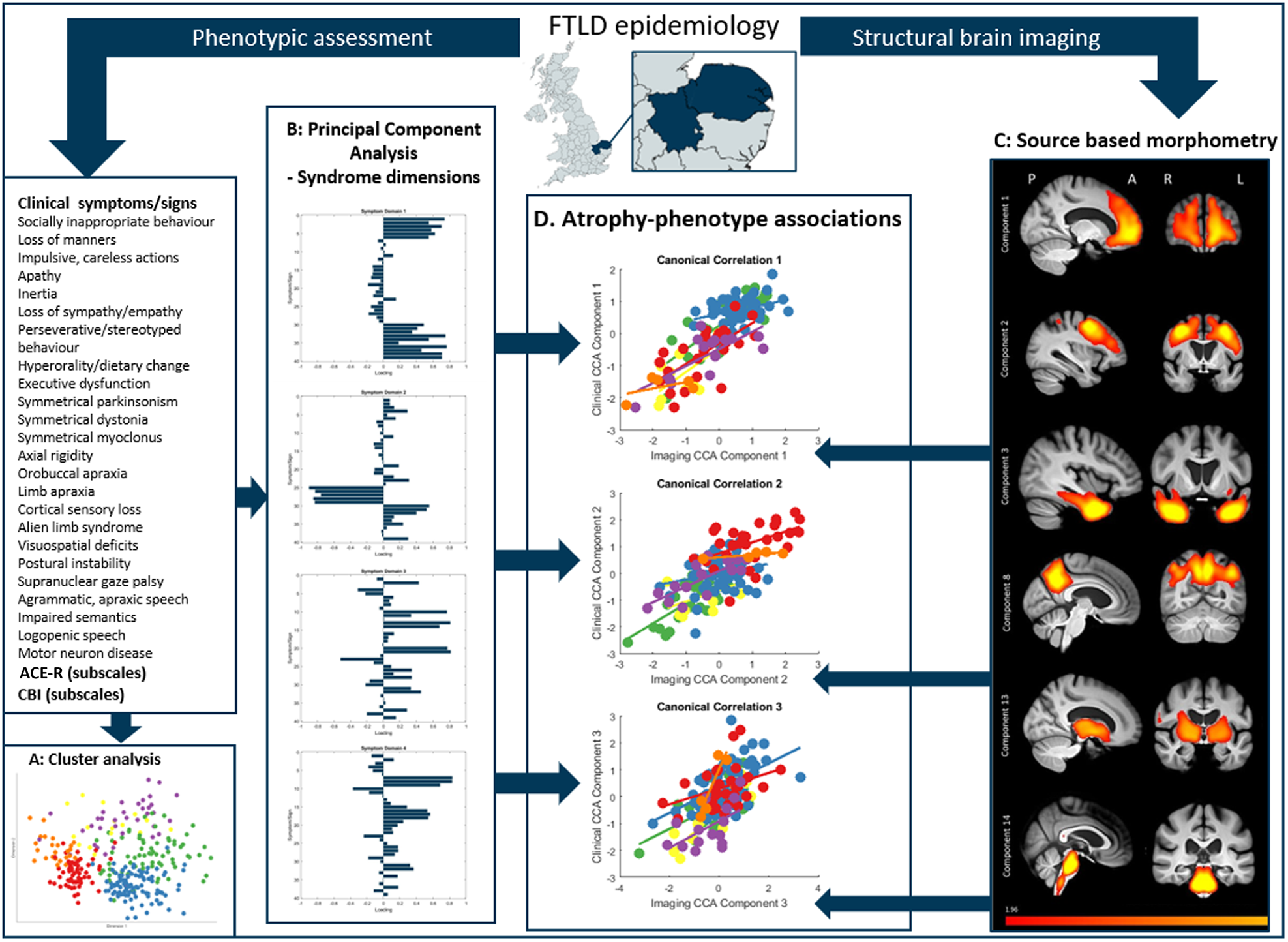Degeneration in the frontal lobes of the brain can produce many different syndromes, which have highly variable and overlapping clinical features. While clinical diagnostic criteria for these conditions has been refined in the last decade, a transdiagnostic approach to frontal lobe degeneration—which looks at variations in cognitive and behavioural traits, rather than diagnostic labels—may prove to be better in explaining how changes in brain structure drive patient outcomes. In this study, researchers examined 310 patients with cognitive symptoms likely caused by frontotemporal degeneration. Across all the diagnostic groups represented in the sample, behavioural disturbances were present. In order to understand the relationship between the brain and behaviour, Murley and colleagues used a canonical correlation analysis to look at how patterns of brain atrophy related to each other across their sample. They found three distinct brain-behaviour relationships, which varied in continuously across the cohort and drove symptom severity. This indicates that the syndromes associated with frontotemporal degeneration are not represented well by discrete diagnostic categories, but rather, that they exist in a multidimensional spectrum. In other words, patients often experience attributes of multiple disorders, and these variations are reflected in structural differences in the brain. It is important to recognize individual differences in clinical phenotype, both for clinical management and to understand pathogenic mechanisms. A transdiagnostic approach to the study of frontotemporal degeneration syndromes provides a useful framework with which to understand disease aetiology, progression, and heterogeneity and to target future treatments to a higher proportion of patients.
Citation: Murley, A.G., Coyle-Gilchrist, I., Rouse, M.A., Jones, P.S., Li, W., Wiggins, J., Lansdall, C., Rodríguez, P.V., Wilcox, A., Tsvetanov, K.A., Patterson, K., Lambon Ralph, M.A., & Rowe, J.B. (2020). Redefining the multidimensional clinical phenotypes of frontotemporal lobar degeneration syndromes. Brain, 143(5), 1555-1571.
doi: 10.1093/brain/awaa097.
PMID: 32438414

 MRC Cognition and Brain Sciences Unit
MRC Cognition and Brain Sciences Unit


